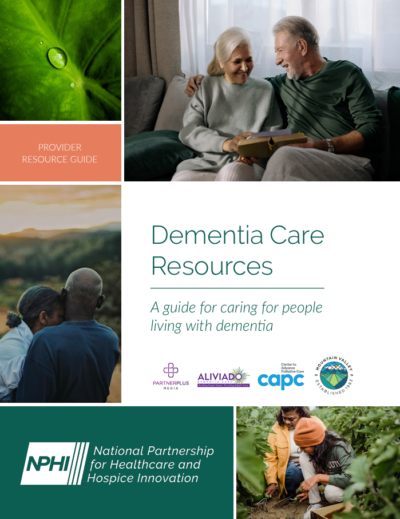Choosing the Perfect Charlotte Care Home: Trick Elements to Consider for Your Family
Choosing the Perfect Charlotte Care Home: Trick Elements to Consider for Your Family
Blog Article
Exactly How to Give Purposeful and Individualized Dementia Treatment
The provision of tailored and purposeful dementia care requires a nuanced understanding of each person's distinct history and choices. Treatment strategies need to be customized to engage the individual in ways that resonate with their past experiences, consequently fostering psychological connections and improving total well-being.
Comprehending Dementia Individuality

Treatment companies have to evaluate cognitive capabilities, emotional states, and behavior patterns to develop tailored treatment strategies. This may consist of adapting interaction styles, using familiar routines, and utilizing significant activities that reverberate with the individual's previous experiences. Involving a person with an enthusiasm for music with musical tasks may stimulate positive memories and improve emotional well-being.
Moreover, comprehending originality fosters a caring approach that appreciates the self-respect and autonomy of those coping with mental deterioration. It motivates caretakers to pay attention proactively, observe behavioral hints, and continue to be versatile in their caregiving methods (memory care facilities charlotte). By prioritizing individuality, caregivers can not only improve the lifestyle for those with dementia but also build an extra extensive understanding of their one-of-a-kind perspectives, ultimately leading to much more efficient and understanding treatment
Building Trust Fund and Connection
Developing trust fund and relationship is basic in dementia care, as it develops a risk-free and supportive environment for people influenced by the condition. Structure these connections requires regular, caring interactions that focus on the needs and sensations of the person. Caretakers should come close to interactions with empathy, acknowledging the distinct challenges faced by those with dementia, including amnesia, confusion, and emotional distress.
Caretakers ought to utilize clear, simple language and non-verbal hints to communicate understanding and support. Active listening demonstrates regard and recognition, enabling individuals to share themselves without concern of judgment.
Establishing a routine can additionally boost trust fund. Knowledge with daily activities and caregivers promotes a sense of stability, enabling people to feel more comfortable. It is important to engage with people on a personal degree, making the effort to discover their life history, choices, and interests. By doing so, caregivers reinforce the individual's identity, promoting self-respect and regard, eventually bring about more powerful, much more significant relationships in the context of mental deterioration care.
Tailoring Tasks and Interaction
Engaging people with mental deterioration with tailored tasks can considerably improve their high quality of life and foster a deeper connection between caregivers and those in their treatment. Customization is crucial, as it acknowledges the distinct histories, interests, and abilities of each person. Tasks should be created to promote cognitive functions, advertise physical movement, and motivate social check my source communication, all while remaining pleasurable and fulfilling.
To tailor activities properly, it is vital to analyze the person's preferences and cognitive capacities. For example, some may discover delight in gardening, while others may value music or art. Simple, familiar tasks can evoke favorable memories and offer a feeling of success. In addition, including aspects of regimen can provide convenience and stability, allowing individuals to engage with activities extra confidently.
Caregivers can boost engagement by participating together with the individuals, cultivating a helpful and interactive atmosphere. It is likewise essential to remain adaptive and adaptable, adjusting activities as required based on the individual's power degrees and mood. Inevitably, purposeful interaction through customized tasks not only boosts people with mental deterioration however additionally enhances check out here the caregiver partnership, advertising mutual enjoyment and understanding.
Efficient Communication Methods
Efficient interaction is essential in dementia care, as it fosters a feeling of link and understanding between caregivers and individuals experiencing cognitive decrease. Utilizing reliable communication methods can dramatically enhance the high quality of communications and reduce stress for both events.
Firstly, utilizing straightforward, clear language is important. Familiar words and short sentences assist individuals comprehend and respond better. In addition, maintaining a tranquility and favorable tone can develop a comforting atmosphere, which is vital for individuals who may really feel distressed or overwhelmed.
Non-verbal interaction plays a considerable role. Caretakers must focus on body language, face expressions, and motions, as these hints can frequently convey greater than words - dementia care charlotte. Establishing eye call and using mild touch can likewise reinforce connections and share empathy
Active listening is an additional crucial element. Caretakers must be attentive, permitting individuals to express themselves fully, also if their speech is fragmented or vague. This reveals respect and motivates more open communication.
Last but not least, verifying sensations and experiences is vital. Acknowledging feelings, no matter their basis in reality, can give comfort and enhance the caregiver-individual partnership, promoting a much more supportive atmosphere.
Sustaining Household Participation
Family participation plays a significant role in the total care and support of individuals with mental deterioration. Engaging important source household members develops a collaborative atmosphere that improves the quality of care, fosters emotional connections, and guarantees that the special demands of the individual are satisfied. Member of the family frequently have vital insights right into the individual's history, choices, and behaviors, which can be important in creating customized care techniques.

Additionally, member of the family can be urged to take part in day-to-day care tasks, such as engaging in meaningful discussions or assisting with acquainted regimens. This not only aids suffer the person's sense of identification however also strengthens familial bonds. Eventually, by cultivating an inclusive approach that values family contributions, treatment providers can improve the general experience for both individuals with mental deterioration and their enjoyed ones.
Conclusion
In conclusion, supplying significant and customized mental deterioration care requires a thorough understanding of each individual's one-of-a-kind background and preferences. Jointly, these strategies add to improved quality of life for individuals with mental deterioration.
The provision of meaningful and individualized dementia care needs a nuanced understanding of each person's special background and preferences. By doing so, caregivers enhance the person's identity, advertising dignity and respect, eventually leading to stronger, extra significant connections in the context of dementia care.
Engaging people with dementia via customized tasks can substantially improve their quality of life and foster a much deeper link between caregivers and those in their treatment.Family involvement plays a considerable duty in the total care and assistance of people with dementia. Ultimately, by promoting an inclusive method that values family payments, care service providers can enhance the total experience for both individuals with dementia and their liked ones.
Report this page